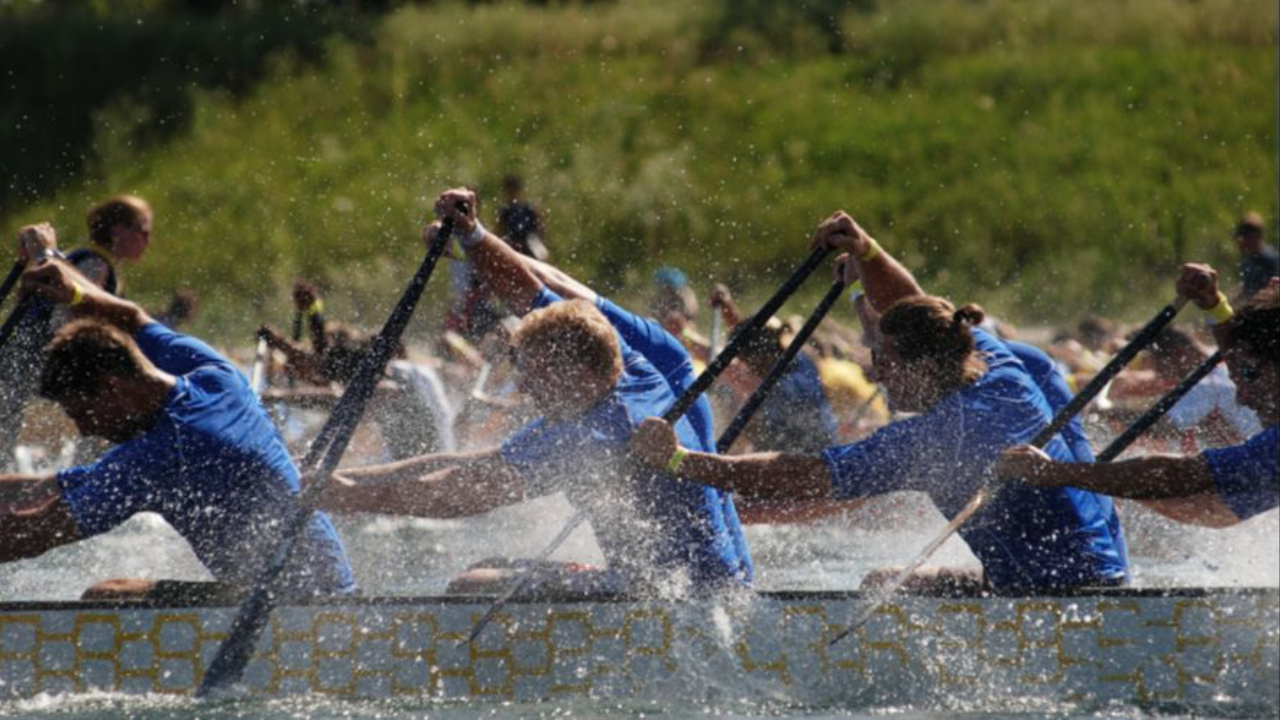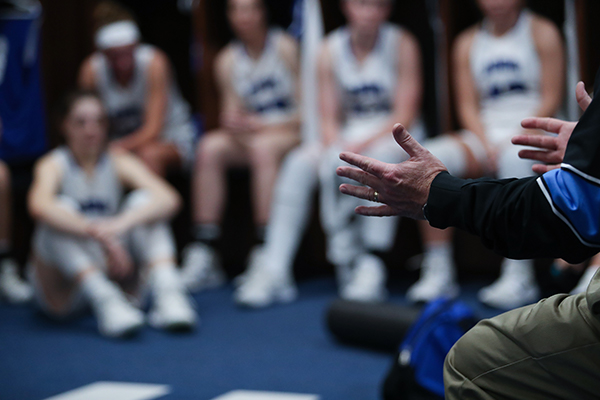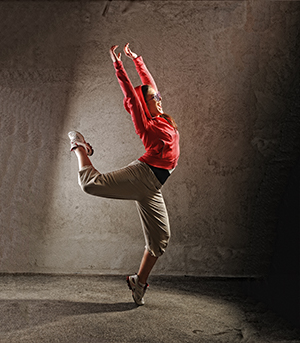How To Personalise Your Coaching To Elite Athletes

The Power Of Aligning Goals With Values
As a coach of elite athletes, you understand the importance of getting the best out of your athletes. But what if there was a way to use your natural talents to do this more effectively?
Think about just how different all our athletes are. Getting results from one athlete can be a different process to getting results from another. One size really doesn’t fit all.
So as a coach, how well do you know your athletes? Do you know what triggers them into action? What drives them and what scares them? And if so, how did you work it out? Was it something that was innate, or do you have a process that enables you to better understand and optimise your athletes?
If you think about just one of your athletes right now:
- Do you know if they are visual, audio, or emotional processors?
- Are they results-driven, process-driven or socially-driven athletes?
- Do they use away-from or towards motivation?
- Do they have a clear goal?
- Are they internally or externally referenced?
- Are they emotionally triggered or are they closed off?
- Do they have an active network around them or are they loners?
These are some of the important questions to find out when you start working with them, because understanding your athletes before they start will enable you to manage and get the best results from them – because you’re working with them, not against them.
At this point you may be wondering why you really need to know each individual in order to coach the team. However, if you don’t then you’re setting yourself up for a long rocky road and not going to get the best out of them, you’re not going to get the best for you, and it’s probably going to impact negatively on your team or your club’s dynamics.
What’s Your Coaching Style

Most coaches have a preferred coaching style, myself included.
- Some play the numbers and statistics game, these are like the pinball machine coaches who spit out different statistics and results and expect them to go away and respond or react to that.
- Some are the nurturers, they’re the easy going, the ‘ease you along with a hug and a smile’ kind of coach and they make them feel good; they’re talking to the emotions of that athlete.
- Some are the technicians, they give specific, precise, clinical information and expect that athlete to go away and apply that.
- Some are the bad arse coaches who rant and rave and try to get a reaction based on their emotions.
- And some appear to be inactive and disconnected, choosing to coach more mysteriously through some mental telepathy and expect the athlete to understand and get where they’re coming from.
It is important to remember that while one approach may work for some, it won't be effective for all athletes, as each athlete may respond differently. Some athletes may need technical information to understand why they are doing something, while others may respond better to emotional support.
Understanding Who You Are Working With
When I’m asked to help build an effective coaching programme, be it for a coach with an individual athlete or a team or a club, we build a system to understand their athletes.
For a coach, taking that little extra time to understand the athlete, allows you and the athlete to build a rapport, to build a bond, which is going to be vital when you’re working with or you’re pushing that athlete, when they may be having some emotional fears, they may be having some confidence issues and you’ve got to get behind them and nudge them in the right direction. Understanding where and when and how to apply that pressure will enable a coach to move forward without it becoming a conflict.
Now we’re not asking you to have biometric testing for your athletes and assess them, although some organisations do. When I competed and we travelled to Russia, one of the things I noticed was the way they selected their athletes was a very systematised and mechanical process, something that I certainly hadn’t seen as an athlete myself.
Getting New Athletes Up To Speed

In the world of working with elite athletes, coaches often adopt a "learn on the job" approach when a new athlete joins their team. However, this can be highly inefficient and distracting for everyone involved. It can also be disheartening for the athlete, who may not feel heard or understood.
When a new athlete joins your team, they may be coming in with preconceived ideas and habits from their previous coach or club. In order to get the best out of them quickly, especially if they need to compete in a short amount of time, it's important to help them seamlessly fit into your system and adapt to your communication style. Delaying this adjustment period can lead to wasted time, budget, and energy that could be better spent on improving the athlete's performance and developing other athletes.
By prioritising effective communication and a clear understanding of expectations from the beginning, coaches can create a positive and productive environment that helps athletes thrive. This approach not only benefits the athlete but also creates a more efficient and effective coaching process, ultimately leading to improved results on and off the field.
Building a Mental Profile
So how do we do this? How do we build this structure to understand the athletes before we start working with them? How do we know which is the best style: do I need to be the statistician; do I need to be the nurturer, or the technician? Which one do I need to be when I’m working with a specific athlete? How do I step into that role as the coach? And if I’ve got a team, does that mean I need to have multiple personalities in order to be an efficient, effective coach? That might help… but of course not, you don’t have to wear so many hats. You just need to know enough about each athlete to be able to deliver the information in a really precise and targeted way.
What I utilised as an elite coach and now as a professional mind coach, is a three-phase approach,
-
The pre-coaching questionnaire
It’s a set of questions designed to get certain information out of them – both for them and for the coach – and it takes no more than five minutes. Rapid-fire, just put down the first thing that comes to them to ascertain:
- their core values
- their core beliefs
- their attitude
- their drivers and their motivators
Understanding what their values are and what their core beliefs are will enable you to manage their attitude far more efficiently. And by discovering this information you’re not changing what the club’s direction is or the club’s beliefs are. You are bringing that athlete into the fold and understanding what’s important to them and help them see what’s important to the club, the coach and the team.
This is something I witness frequently when a high profile player gets brought into an existing team dynamic and come in with different core beliefs and certainly different values. If the team had been built over a period of time and they’re working in synergy going towards a certain direction and then a high profile player gets plonked right in the middle and they’re about winning every week, more money, more sponsorship, then that dynamic isn’t going to be one that’s conducive to working together.
-
How they think
- do they talk in pictures, in expressive language, or in emotions?
- are they internally or externally referenced? Are they talking in “I”s or are they talking in “we”s?
- Are they big picture or are they detailed thinkers?
-
How do they like to be coached
I ask them, “How do you like to be coached? How do you like to be communicated with?”, because this has a dual effect. Not only am I getting their interpretation, I’m getting their views, their perception of how they like to be coached. It’s giving me an insight into what’s important to them, but also what they’re doing, what they’re getting from that is they’re feeling heard. This enables us to build this rapport, to build this level of respect so that they understand that I have a job to do and I understand that there’s certain things that maybe they just don’t like. For me, I’m very black and white, if someone is feeling something, I’d prefer them just come out and say it. Other people are a little bit more emotionally-driven or emotionally protected and that would possibly offend them. So I don’t want to offend anybody, I want to work with them to get the best results for them, so I need to understand what works for them, they need to feel like they’re being heard, we need to work as a team.
I go through those three phases before I work with any athlete. That gives me enough information to kickstart our coaching.
So when you get a new athlete come into your programme – and we’re not talking necessarily recreational here, we’re talking elite or professional – do you go through that kind of process? Do you have a system, a standard operating procedure where, before they step into your environment, you’re getting to understand them, you’re getting to know that athlete and come up with a plan, come up with a strategy to better communicate with that athlete?
They Get The Best Of You and You Get The Best Of Them
It’s all about becoming a verbal sniper, rather than a machine gunner. Some coaches are very prone to becoming that machine gunner, throwing out a squillion different coaching techniques or information or styles, hoping that something is going to hit the target. I would much rather be a sniper, that I know my target, I know what I want to say to them, I know that what I want to give them will give them the best result, it’s just about at what point do I pull the trigger? At what point do I deliver my information is going to be so incredibly precise and on target that that athlete is going to accept it, use it and own it? Because that’s going to get the best result for them, it’s going to be far more efficient for me as a coach, and it’s going to get the result that’s going to be far more accepting for them to move forward and take on the next process.
So that’s how I do it as a mind coach and, to be really honest with you, that’s not a lot different to how I used to do it as an elite performance coach.
What About Young Athletes?

When I was working one-on-one with athletes or I was working with a team, I had a file for each athlete. I had them completing journals, I had them writing goals, and I could see what was important to them. When you’re working with younger athletes, quite often they’ll tell you what they think you want to hear. Especially if they’re new to the team dynamic, they will try to assimilate into the team, they’ll be listening to what the team is saying or what other key athletes and peers are saying and try and conform. That might not necessarily be the best thing for them. Getting them to write stuff down, getting them to complete journals in their own time outside of the training venue, enables you to get a step inside in their mind; to get a step inside their emotions; what’s important to them; their values; their beliefs; and obviously their attitudes; looking at what drives them; what motivates them.
How Can You Use YOUR Natural Talent To Get The Best Out Of Your Athletes
Understanding these athletes, understanding what works specifically for them will enable you as a coach to be far more efficient and effective at delivering your message. No coach - and I don’t care how long you’ve been coaching - wants to stand up session after session saying the same thing time after time after time and going nowhere, being stagnant, going around like a duck in a duck pond, just keep circling and circling. You want to progress, you want to go forward. In order for you to do that, in order for you to progress and go forward, you need to continually build on what went before, so what do you need to do now?
I hope this has given you an opportunity to see what you can do as a coach to build the bigger picture, to understand your athletes a little bit more efficiently so that you can deliver that information more efficiently, more direct and precise, because nobody knows your industry better than you do. If you are a technical coach in an organisation that employed you because of your talent, it’s important for you to share that talent, to share that information. And if you are sharing that information but no-one’s listening then you’re not efficient, so it doesn’t really matter how talented you are as a coach, it doesn’t really matter what information you have, if no-one’s hearing it or accepting it, then it’s not worth the paper it’s written on. So work out the best form of delivery that you possibly can.
So if you’re a coach and you’re reading this and you’re thinking, That’s exactly what I need to do, how do I build that? I’d love to help you personally inside The Main Arena Coach Membership.

